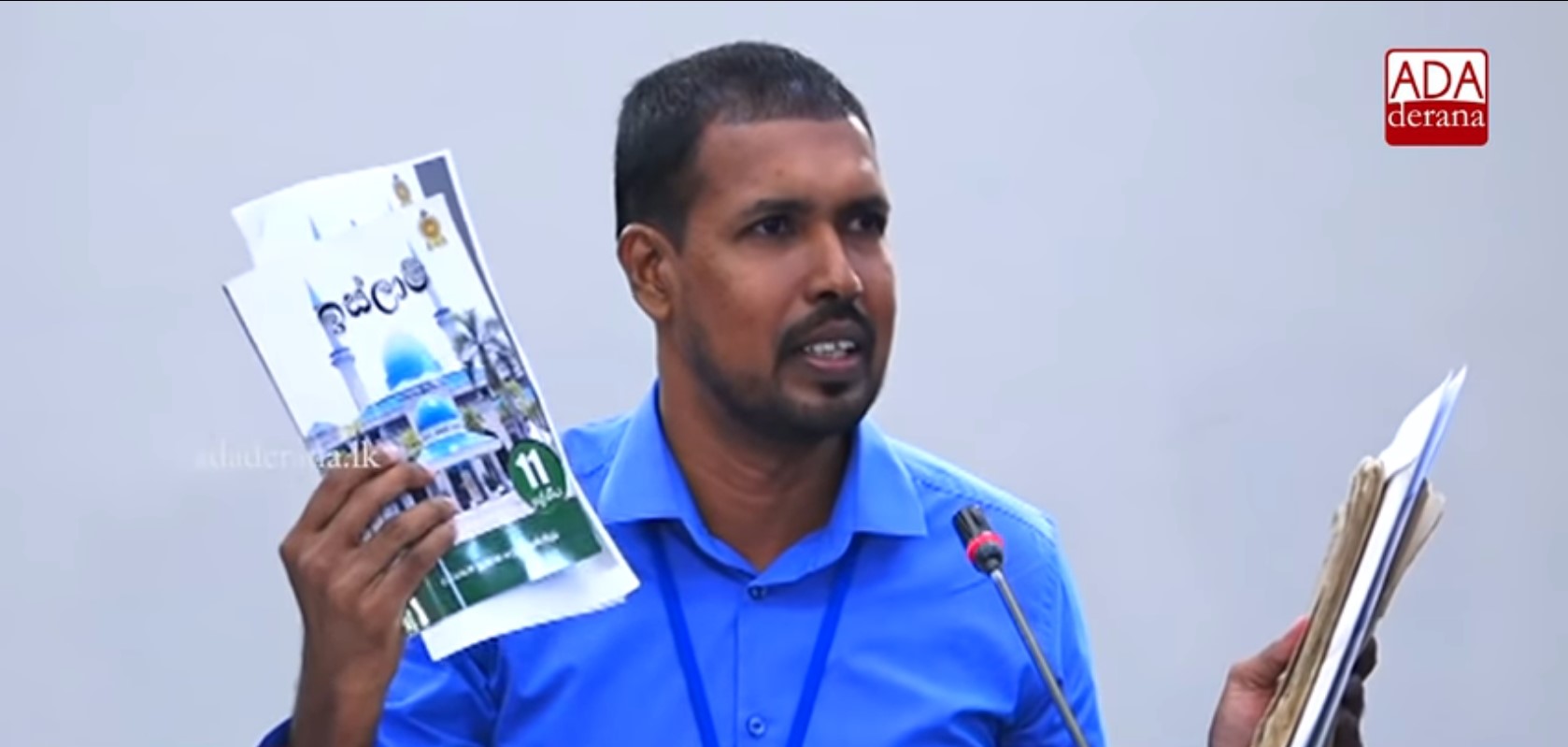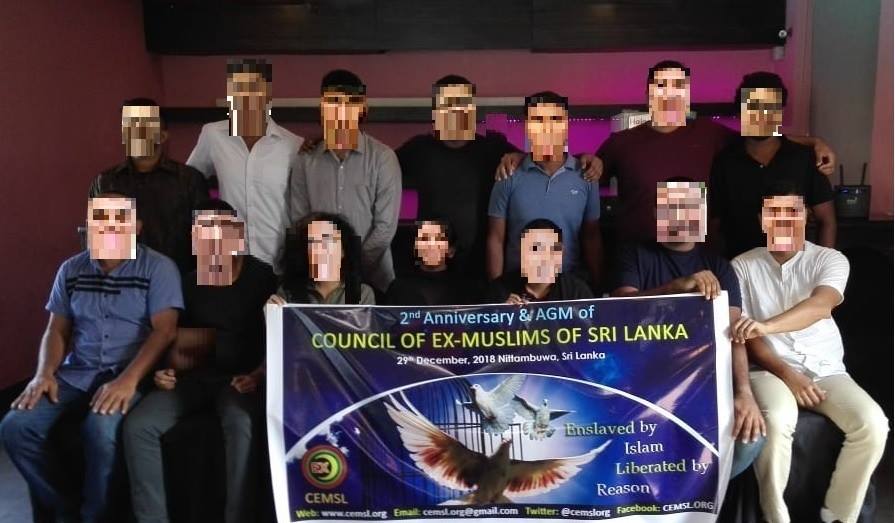
Ex-Muslims in Sri-Lanka still have to gather in hiding
They are still targeted by Muslim fundamentalists. Here's why.

They are still targeted by Muslim fundamentalists. Here's why.
The Council of Ex-Muslims of Sri Lanka was founded in 2016 by a handful of brave members. Four years later the organization is growing fast, with dozens of new members joining. And yet, they still have to hold their General Assembly in hiding, to avoid being targeted by Muslim fundamentalists.

Members of CEMSL back in 2018, during their 2nd AGM
18 countries around the world still punish “apostasy” – 6 of which with prison, and 12 with death penalty. Despite not living in one of those countries, Sri-Lankan citizens still find very hard to leave religion (namely “Islam”). Indeed, in the eyes of Muslim fundamentalists, Ex-Muslims who leave Islam are “apostates” – and according to some conservative interpretations of the Quran and the direct orders of the hadees the punishment for apostates is “death”.
The members of the Council of Ex-Muslims of Sri Lanka (CEMSL) are well-aware of this. That is why they still work in hiding, avoiding to gather together in public, for example to hold a General Assembly or even a simple Café Humaniste.
“Our first goal”, says Rishvin Ismath, CEMSL’s Spokesperson, “is to establish a trusted community for all Sri Lankan Muslims who want to leave Islam in a safe way. We want to provide them emotional and moral support, recognize themselves as non-religious and show them that leaving Islam is possible.”
Rishvin is the only renowned face of the organization. His face went public in June 2019, when in front of a Parliamentary commission he showed that some Islamic textbooks printed and distributed by the Government for Muslim students contained explicit incitements “to kill the apostates of Islam“. Since that day Rishvin received multiple death threats
The third Annual General Assembly of CEMSL was held behind closed doors on 26 December 2019, also thanks to the support of Humanists International. It started with a minute’s silence for the victims of Easter Sunday Bombings, the event that shocked the whole Sri Lanka back in April 2019. Then the Assembly passed a resolution to urge the government to act upon a series of key points, including the need of a secular education, the ban of Female Genital Mutilation, and the abolition of Muslims Marriage and Divorce Act.
“Another of our main goals”, adds Rishvin, “is indeed to support Muslim women suppressed by men who use religion as a tool. We want these women to be educated and independent, equal and respected, whether they decide to leave the religion or decide to follow it.”
 “We are proud and honoured to support the work of Council of Ex-Muslims of Sri Lanka”, says Giovanni Gaetani, Membership Engagement Manager of Humanists International.
“We are proud and honoured to support the work of Council of Ex-Muslims of Sri Lanka”, says Giovanni Gaetani, Membership Engagement Manager of Humanists International.
“Rishvin and his friends show to all activists around the world what it does mean to be a humanist in those countries where atheism and apostasy are still considered morally (or legally) unacceptable.
“We follow closely the activities of CEMSL, supporting them in any way we can, with grants, advice or even by regularly checking out their situation.
“The message we want to send to our friends in Sri Lanka is indeed the following: you are not alone, and we are here to help you.“